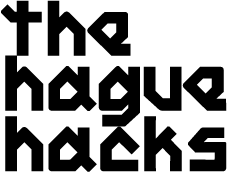The Hague Hacks Festival 2019
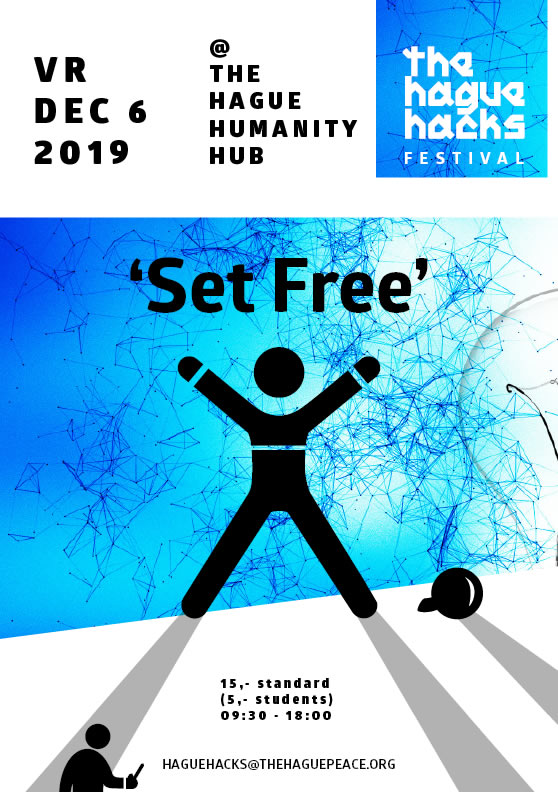
HH 2019
Date: December 6th 2019
Place: Humanity Hub, The Hague
Price: Regular: € 15,- / Student € 5,-
The theme for this year’s festival is ‘Set Free: Tech to Empower Human Rights and Freedoms’.
Rights and freedoms that you and I may take for granted are not self-evident in many states and communities. Today’s human rights violations will be illustrated by case studies from diverse countries and hosted in five special workshops, each dedicated to defending specific article(s) from the Universal Declaration of Human Rights.
These workshops connect grass-roots problem owners and human rights defenders with an audience of diverse expertise to investigate and understand their challenges, and explore their contexts and mechanisms from a plurality of perspectives.
This year we are dedicating one workshop to exploring methods and new technologies that could positvely impact on global ecological issues. So, turn up and let us solve the world’s problems togther, we’d love to see you there! Until December 6th 🙂

• Videos
• Report HHF 2019
Friday December 6th, 2019
Day(s)
:
Hour(s)
:
Minute(s)
:
Second(s)
@The Hague Humanity Hub
• Workshops 2019
Workshop 1
Political Participation
Nicaragua
UDHR: art. 21
‘By the People, For The People’
Latin America is currently experiencing a wave of democratic oppression and human rights violations. In particular, Nicaragua is going through its most violent social uprise since the Sandinista Revolution in 1979 and is currently under an oppressive military dictatorship that has blocked all forms of freedoms in the country. SOSNicaragua, a self-organized international solidarity group currently active in over 30 countries, has been working towards reestablishing peace and democracy in Nicaragua. By incorporating a strong technological element as a cornerstone of their activism, SOSNicaragua is becoming an example of how even the strongest dictatorships can be stopped by collective coordinated action.
How can technology reach out to and unite the Nicaraguan people and diaspora to coordinate and reappropriate the Government?
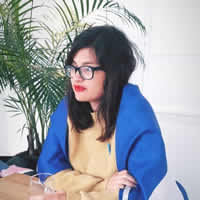
Danny Osorio
feminist & social activist
Danny Osorio is an entrepreneur, feminist, social activist and Architect from Universidad Americana (UAM) with a Postgraduate Degree in Sustainable Architecture. She is currently living in The Netherlands with her husband and daughter, seeking asylum for political reasons and raising awareness to the human right violations her country Nicaragüa is going through. For more information on the democratic violations against Nicaragua you can contact her through her Twitter account @dannyosNL.
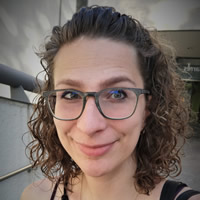
Julienne Weegels
Activist & Academic
Julienne Weegels (Haarlem, 1987) is a Dutch academic who works as a postdoctoral researcher at the Centre for Latin American Research and Documentation (CEDLA) with the University of Amsterdam. She has conducted extensive research inside and around Nicaragua’s prison system, working with prisoners and former prisoners of three Nicaraguan prison facilities (2009-2016). This research focused on (former) prisoners’ experience of imprisonment and the state, of violence and ‘change of attitude’. Following the 2018 protests, she began developing a research project on (changing) practices and understandings of justice, confinement, and sovereignty in Nicaragua. She does this especially by looking at the representation, articulation and organization of different modalities of protest through nascent social movements’ and activists’ social media and new technology use.

Gabriela Orozco
Activist & Legal Forensics
Gabriela Orozco is a graduate psychologist from the Central American University of Nicaragua with a Master degree in Legal, Forensic and Criminal psychopathological expertise from the International University of Catalonia, Spain; a postgraduate degree in Psychotherapy and a specialty in Latin American criminal profiler of the Mexican Federation of Criminalistics and Criminology, Mexico. She has carried out consultancies on the topic of gender, prevention of gender violence and prevention against child sexual violence, in different state organizations in Nicaragua (Center for International Studies). She has volunteered and interned in both Nicaragua and Mexico (Save the Children Mexico) on issues such as Prevention against violence, school, family and social violence, with parents, teachers and children. She currently works as a therapeutic companion, social activist and support at work in Europe at SOS Nicaragua Europe and SOS Nicaragua Global.
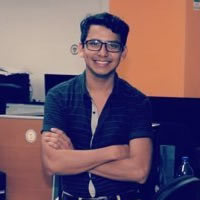
José Denis-Cruz
Founder Despacho 505
Founder and editorial coordinator of Despacho 505, a medium whose editors work from exile in Spain. A journalist for eight years, José has worked for La Prensa, El Nuevo Diario, the magazine Hello! Central America and The Herald of Colombia. In 2013 he was the winner of the 2013 Pedro Joaquín Chamorro National Prize in the current journalism category.
Workshop 2
Gender Inequality
Bangladesh
UDHR: art. 1
‘Breaking the Patriarchy’
Gender inequality is a social justice issue as old as time. As gender equality increases in the West, this same acknowledgement of human rights and freedoms for women have not been equally accepted around the world. In Bangladesh, the internet has enabled many to share their experiences and struggles via portals and social media. Feminist portals have become a hub for community building and advocating for gender equality, but also a source of conflict with those who do not share the same ideology and express resistance towards it. This is often manifested in the form of cyber-threats and bullying, which have offline implications. Similar to many contexts, online Gender-Based Violence is widespread in Bangladesh.
How can tech be used more effectively to address gender inequality in Bangladesh? How do we spread the message of gender equality effectively and safely for a more just society?
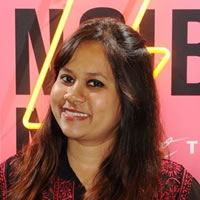
Shucheesmita Simonti
Feminist & HRD
Shucheesmita Simonti completed an MA in Development Studies with at Major in Human Rights, Gender and Conflict Studies: Social Justice Perspectives at the International Institute of Social Studies, Erasmus University Rotterdam. She is the project officer of the Bangladesh Workgroup at the Hague Peace Project. Her passion includes migration and gender, peace-building, inter-faith dialogues, women’s empowerment and human rights. She is one of the Women Deliver Young Leaders (2018).She was a participant of the Young Feminist Summer Camp organized by the European Women’s Lobby. She is also working as editor of the English website of the Women Chapter. In the past, she has researched gender-based violence experienced by Rohingya refugee women.
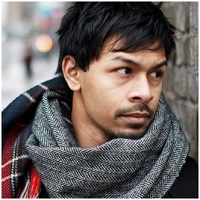
Imtiaz Shams
Tech Expert & Activist
Imtiaz Shams is a tech entrepreneur and human rights activist who has used his experience to help apostates who suffer when they leave conservative religions. In 2012, he began creating ‘underground railroad’ networks for former muslims around the world. In 2015, he set-up Faith to Faithless, an organisation working to reduce the stigma faced by ‘apostates’ of all religions. He has featured on the BBC, Vice, the Guardian, and the Times. His charity programme has helped thousands find a place in a world that often dehumanises the non-religious. In 2019 he set up the charity Think School, creating education videos in languages like English, Bangla, Arabic, Hindi on topics like science, history and human rights.
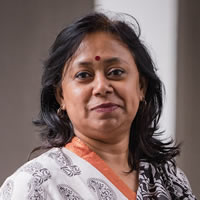
Supriti Dhar
Journalist & Feminist
Supriti Dhar is a journalist and women rights activist from Bangladesh. After completion of her master’s in international journalism in former Soviet Union, went back to her country and started her career in media. Almost 21 years she worked in the different media houses. As a woman journalist she had to fight against all kind of discrimination and always felt the need of a women-led platform. In 2013, she founded the blog Women Chapter, www.womenchapter.com to challenge the patriarchal system and societal taboos. Women Chapter is the first ever online platform for women writers in Bangladesh. Within a very short period, it emerged as a progressive platform with hundred thousand of readers and she, as an Editor, received national and international awards. She was one of the pioneers of many rights’ movement in Bangladesh. When Bangladesh started killing of bloggers, freethinkers and atheists, Supriti was also a soft target of extremists’ groups for her outspoken criticism of patriarchal structures and women’s vulnerable condition in traditional South Asian society. As a result, she was bound to flee from the country. Now she is in Sweden in a two-years residency programme of ICORN (International cities of refuge network).
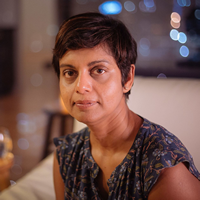
Bonja Ahmed
Writer & Activist
Rafida Bonya Ahmed is a published author, moderator at Mukto-mona blog, the first online platform for Bengali speaking freethinkers. Survivor of a deadly terrorist attack herself in 2015, she is advocating for raising awareness on fundamentalism, and protection of secular writers and activists. She received the Freedom From Religion Foundation Forward award in 2016. She is currently a visiting Fellow at the London School of Economics. She worked in the IT industry for twenty years before .she decided to be a full time writer and an activist. She was a Senior Director of New Product Innovation at Equifax, USA until 2015. She has a Bachelor’s Degree in Computer Information Science from Minnesota State University, Mankato, USA.
Workshop 3
Peace Education
Netherlands, Northern Ireland,
Turkey/Kurdistan, North Korea
UDHR: art. 2
‘Information vs. Indoctrination’
Identities are not only founded on who a person or group is, but moreover, who they are not. This very healthy and natural differentiation can quickly escalate into negative Othering and dehumanization. As the world becomes more interconnected, the urge to differentiate ourselves becomes stronger, but so does the resistance thowards “them”. “Us vs. Them” thinking has dominated international political, ethnic and nationalist narratives over the last decade, leading to devasting consequences.
How can tech humanize “The Other” and bring people together?
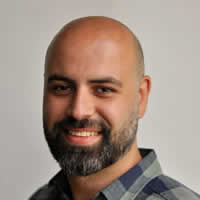
Tayfun Balcik
Historian & activist
Tayfun has obtained a Master‘s degree in History from Leiden University. He is Program Coordinator for the Armenian-Kurdish-Turkish workgroup, a dialogue project to reduce tensions between these groups and find ways to work together more. As a historian he gives lectures and workshops on issues related to the modern history of Turkey. Furthermore, he is one of the members of the ’Nieuw Amsterdam Raad’, an advisory collective to give progressive counsel on matters related to migration, discrimination and social cohesion. Tayfun was born in Amsterdam to a Turkish family.
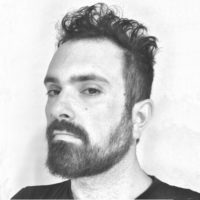
Christian Cherene
Cognitive Science and Tech
Christian is the co-founder of BeAnotherLab. BeAnotherLab is an international interdisciplinary collective formed in 2012 that investigates, reproduces and communicates individual subjective experiences with a focus on generating perspective-taking toward pro-social behaviour. Their system “The Machine To Be Another” leverages techniques from VR, cognitive science, performance art and documentary to allow users to step in to the shoes of the other. They have worked in over 20 countries in a wide diversity of contexts, ranging from film festivals, art exhibitions and hackathons to psychological and neuroscientific experiments, to conflict resolution workshops in the struggle for a culture of peace. BeAnotherLab has been awarded internationally, including the European Social Innovation Competition (Brussels, 2016), Laval Virtual Award (France, 2014), the N.I.C.E Award for Innovation and Culture (Germany, 2015). Honorary Mentions include Global Pluralism Award (Canada, 2017), STARTS Prize (Austria, 2017), Ars Electronica (Austria, 2014), and FastCo Innovation by Design Award Finalist (USA, 2014).
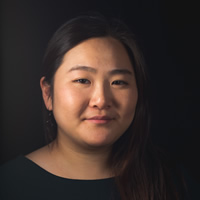
Jiye Seong
Human Rights Education
Jiye grew up in the UNESCO-endorsed experimental town Auroville in South India. A graduate of the Society, Science and Technology Studies at Maastricht University and International Studies at Korea University, she has worked as an interpreter and translator for South Korean tech giant NAVER, Gangnam Style producer YG Entertainment, and environmentalist/photographer Yann Arthus-Bertrand’s projects “7 Billion Others” and “Home”. In her capacity as a media consultant, she has worked with Aftenposten, ARTE, BBC, Korea Exposé and Marie Claire. As Strategic Advisor for North Korea at HRF, Jiye manages the Flash Drives for Freedom program, and works with the North Korean activist community to make their voices be heard internationally.
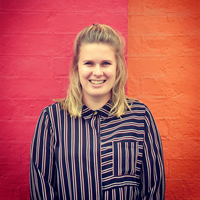
Iris van Urk
Diversity Academic/Activist
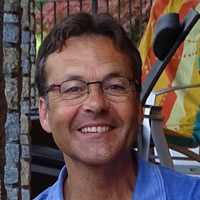
Han Cuperus
Peaceworker
Han comes originally from the world of health and social care. As a district nurse, he worked in The Hague’s neigborhood of Schilderswijk. While working as a nurse, he began to study theology. After his study, he worked as a preacher for the Doopsgezind church in Rotterdam and Dordrecht. As a peaceworker he trains people in ‘Non-violent communication’ using the Marcel Rosenberg method. Since 2016, he has been involved with the PAX initiative of ‘Peace Embassies’ in Rotterdam: ‘Doopsgezind Rotterdam’. Furthermore, he is boardmember of the Dutch wing of ‘The Christian Peacemaker Teams”, an NGO since 1986 that gives support through little teams of non-violent initiatives to communities. At the moment, they work in Colombia, Canada, Iraqi-Kurdistan, Lesbos, Palestine and the borderarea between Mexico and the US. Han’s Jewish and Chrstian family-background also inspired him to participate with the Christian Peacemakers teams in Palestine and Iraqi-Kurdistan.
Workshop 4
Expression and Association
Hong Kong
UDHR: art. 19, 20
‘The Right to Rally’
Change happens when individuals question the status quo; when they are free to think, to speak, to gather and to discuss. The act of protest is a time-honoured tradition in democracy as a form of expression, participation, and resistance. However, peaceful association can be met with violent force. In a technological age when state actors deploy increasingly compromising tactics to subdue protestors, the right to freedom of expression and association is equally under attach. We are witnessing this clash between the protestors of Hong Kong as they resist Chinese encroachment.
How can new technologies enable safer, stronger and more effective protests?

David Losada
Senior Developer Ushahidi
David Losada has been Senior Developer Operations Engineer at Ushahidi for over 5 years. During this time he has participated in the implementation of Ushahidi’s software for several initiatives across the globe. David enjoys architecting systems and working with the communities around Ushahidi’s open source projects.
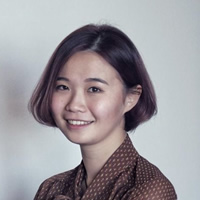
Glacier Kwong
Digital Rights Activist
Glacier Kwong is a Hong Kong and a digital rights activist, currently pursuing her LLM at the University of Hamburg in Germany. Her research focuses on digital rights, data protection and digital ethics in Hong Kong and China. She completed her undergraduate at the University of Hong Kong, during which she led the campaign and lobbying work against the copyright amendment bill which was considered as an infringement of freedom of speech online. She also actively participated in the Umbrella Movement in 2014 and filmed a video that reaches more than 1 million people worldwide talking about the situations in HK. Since then, she has been an active political activist in Hong Kong and has written in press and media commenting on the political and digital rights issues in Hong Kong.
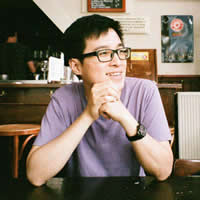
Kenman Tsang
Human Rights Activist
Kenman has more than 10 years of design and implement security sensitive distribution system. He is a native Hongkongese and is now working at Amsterdam.
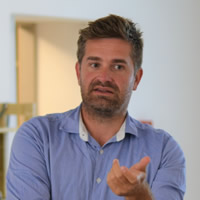
Jakob de Jonge
Founder HPP
After his MA Religious Studies Jakob has gained experience in the field of human rights by working for an organization that defends rights of undocumented migrants. He is responsible for the overall management of the organisation. Besides his work for the Hague Peace Projects he is also a professional visual artist.
Workshop 5
Environment and Human Rights
Multicountry
UDHR: art. 3, 4, 7, 19, 20
‘Our Home and Native Planet’
The right to a clean and sustainable environment is often overlooked as a human right because it is not enshrined in the 1948 Universal Declaration of Human Rights. However, it’s undeniable that environmental rights and human rights are intertwined. UN resolution A/HRC/22/43 states that “[…] climate change has a wide range of implications for the effective enjoyment of human rights, including the rights to life, health, food, water, housing and self-determination […]”. From deforestation to land grabbing to water pollution, environmental activists are protecting human rights by protecting the environment. Technology is a powerful tool for these environmental activists, not only to spread their message of respect and humanity, but also to collect evidence and document environmental abuses.
How can technology predict/prove the link between environmental destruction and human rights challenges? How can technology empower the environmental activists advocating the rights of people and the planet?
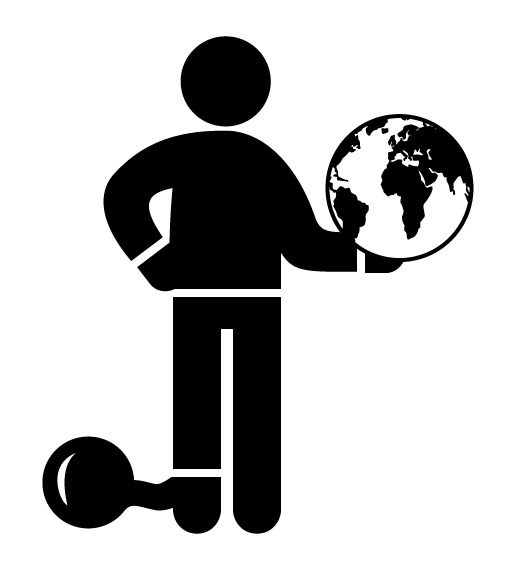
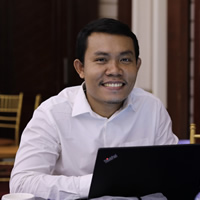
Sar Mory
Co-founder & VP of CYN
Mr. Sar Mory is a co-founder and Vice-President of Cambodian Youth Network (CYN). He has been working for CYN more than 8 years, with a focus on youth capacity development and empowerment, youth participation and youth’s campaign relevant to human rights and environmental issues. He also is a human rights educator, provides various training on human rights and environmental rights, community organizing and advocacy skills, and legal awareness to university student, rural and indigenous youth and community who are affected from the unsustainable development projects such as hydropower dam development and economics land concession and deforestation. He also has volunteered with civil society organization and human rights groups in Cambodia to organize several collective advocacy campaigns to promote freedom of association and expression, and for democracy development in the country. Mr. Sar Mory holds a bachelor’s degree in Law from Royal University of Law and Economics (RULE) and he also earned a master degree in International Human Rights Laws at Pannasastra University of Cambodia (PUC).
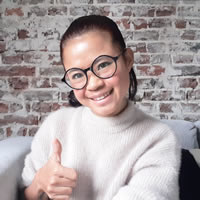
Lim Kimsor
Societal Activist
In Kimsor’s life, she has seen the drastic changes her country has gone through. She has seen her country subjugate itself to foreign companies to take our natural resources and land. With plentiful minerals, large supply of water – my country has conceded to outsiders and enforced unjust land evictions upon many Cambodians. Kimsor, herself was one of them. With no power to fight against this, she was forced to leave her university. For nearly 3 years since her eviction – she dropped out of her university, because there was no possibility to continue and she was jobless and without a home. However, Kimsor found her purpose. She decided to do societal work; to educate people about their rights, why justice should be sought out, and why their land – the land of Cambodia, is important.
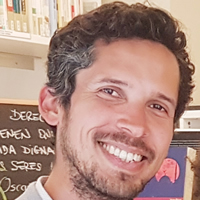
Chale Guadamuz
Env & social activist
Chale Guadamuz is an environmental and social activist that works together with SOSNICARAGUA in the democratization process of Nicaragua. Water conservation is a cause near to his heart, for which he advocated and strongly defended in Nicaragua. Formerly involved mainly in environmental research at Centro de Entendimiento con la Naturaleza (CEN).he is now working on a more social context as Program Manager of the Nicaraguan workgroup at The Hague Peace Projects.
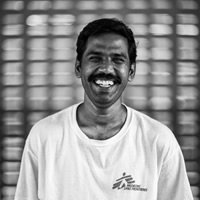
Mohanasundar Radhakrishnan
Water & sanitation specialist
Dr. Mohanasundar Radhakrishnan hails from an agrarian society in Tamil Nadu, India. He obtained his Bachelor’s degree in Civil Engineering from University of Madras in 2002 and MSc. degree in Municipal Water and Infrastructure from IHE Delft in 2009. He worked as a design engineer and was involved in the hydraulic design of drinking water distribution networks and bulk water transmission main in various water supply schemes in India from June 2002 to Oct 2007. After his masters from IHE Delft he worked with Arghyam, an NGO as a Project officer in an integrated urban water management project in Karnataka, India till 2010. He worked as Project Advisor for German International cooperation (GIZ) and contributed towards the preparation of City sanitation Plans and planning of a waste to energy project in Nashik, India. He is a registered volunteer with Mediciens Sans Frontier (MSF) and served as a Water and sanitation specialist in Loas towards improving the water, sanitation and waste disposal facilities of five hospitals in rural areas between Dec 2012 and May 2013. He obtained his PhD from IHE-Delft and TU Delft on the climate adaptation of urban areas towards increasing their flood resilience. He is now associated with IHE Delft’s Flood resilience chair group of Water Science and Engineering Department as a post doctoral researcher. He is one of the volunteers registered with Dutch Surge Support, an program of The Netherlands government which supports international humanitarian agencies who are in need of water and saniatation expert. He served with Red Cross in North Korea as a water and habitation expert in 2019.
• Program 2019
The Hague, NL
December 6th
The Hague Humanity Hub
Fluwelen Burgwal 58
9:30am – 6pm
Day(s)
:
Hour(s)
:
Minute(s)
:
Second(s)
Until Dec 6th 2019
09:30
Welcome
Welcome guests with tea and coffee
10:00
Introduction
Introductory Statements by HH and HPP
10:30
Human Rights Challenges Pitches
Brief explanation of the challenges and the kinds of technologies that could help
11:15
Discovery Workshop
Mapping the Problem and zooming in on opportunity spaces
13:00
Lunch
Free, friendly, and delicious food!
14:00
Ideation Workshop
Start problem-solving as a group and exploring possible solutions
16:30
Final Pitch
Groups present their tech solutions followed by participant discussions
17:00
Networking Hour
Drinks and snacks will be served as guests can chat and network
Ticket price
Regular: € 15,-
Student: € 5,-
• In the Spotlight
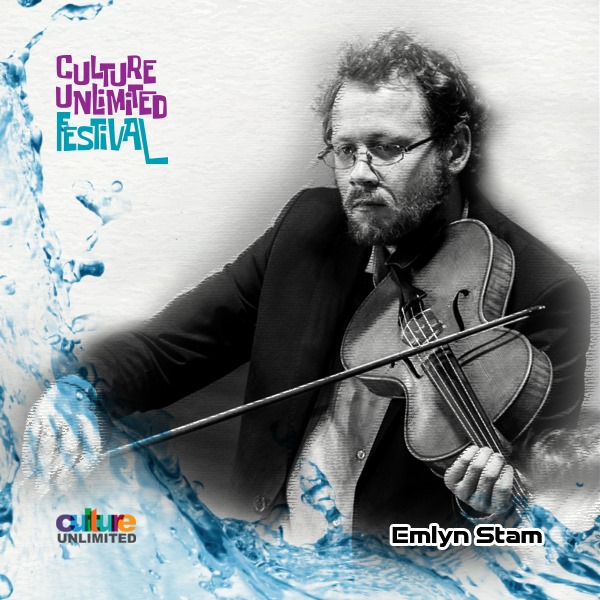
Culture Unlimited
Culture Unlimited aims to connect different cultures through music and other art forms. We aspire to achieve this goal by means of music festivals and concerts, whether or not related to current topics and the relationship between the Eastern and Western worlds; cultural exchange projects; and cultural events (conferences, roundtables, lectures, workshops, seminars, etc.)
After 3 years of collaborations with The Hague Peace Projects, this year we will collaborate with one of its main project; The Hague Hacks.
One of the main topics of this year is Climate Change so we will present concert related to Water with Imre Arthur Ploeg, Maryana Golovchenko, Hannibal Saad, and Emlyn Stam.
Culture Unlimited will be performing live during the networking hour with brand new material inspired by the days proceedings. For more information please visit cultureunlimited.org.
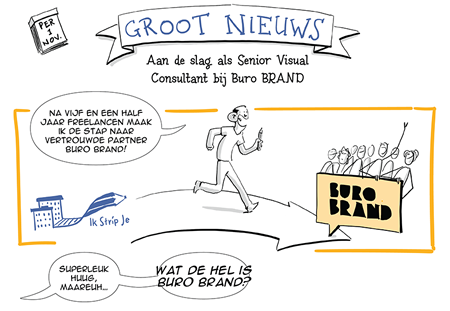
Buro BRAND
Last year’s sketch artist for The Hague Hacks Festival, Hugo Seriese, has joined Buro BRAND. We all loved his pictures from last year which you’ll notice spread around this website.
Hugo is busy this year, so his colleague Theresa Hartgers will be unleashing her artistic talents on the festival instead. She will attempt to capture the essence of our workshops and the ‘vibe’ of the event in her own unique drawing style. This time round the drawings will be made on an i-pad pro, and projected on a screen for the audience to admire at the end of the day. For more info visit burobrand.nl.
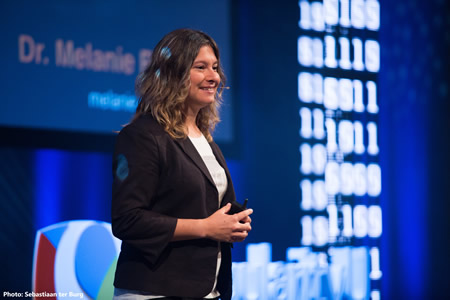
Keynote: Melanie Rieback
Dr. Melanie Rieback is the CEO/Co-founder of Radically Open Security, the world’s first non-profit computer security consultancy company.
She is also a former Assistant Professor of Computer Science at the Free University of Amsterdam (VU) who performed RFID security research (RFID Virus and RFID Guardian), that attracted worldwide press coverage, and won several awards (Mediakomeet, ISOC Award, NWO I/O award, IEEE Percom Best Paper, USENIX Lisa Best Paper). Melanie worked as a Senior Engineering Manager on XenClient at Citrix, where she led their Vancouver office. She was also the head researcher in the CSIRT at ING Bank, where she spearheaded their Analysis Lab and the ING Core Threat Intelligence Project. For fun, she co-founded the Dutch Girl Geek Dinner in 2008. Melanie was named 2010 ICT Professional of the Year (Finalist) by WomeninIT, one of the 400 most successful women in the Netherlands by Viva Magazine (Viva400) in 2010 and 2017, one of the fifty most inspiring women in tech (Inspiring Fifty Netherlands) in 2016, 2017, and 2019.
She was also called the Most Innovative IT Leader by CIO Magazine NL (TIM Award) in 2017, and one of the 9 Most Innovative Women in the European Union (EU Women Innovators Prize) in 2019. Her company, Radically Open Security was named the 50th Most Innovative SME by the Dutch Chamber of Commerce (MKB Innovatie Top 100) in 2016.
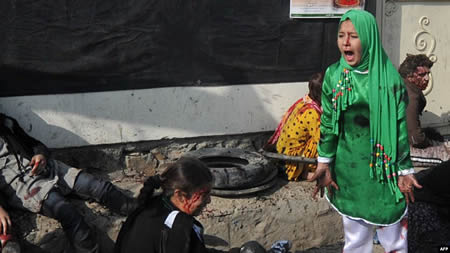
Massoud Hossaini
Massoud Hossaini is the first Afghan to win the Pulitzer Prize. His work captures the horror of violence in Afghanistan.
He won the breaking news photography award for a picture he took after a suicide bombing in Kabul.
His is also the first Pulitzer Prize awarded to a photographer for the Agence France-Presse (AFP) news agency. In the picture, a girl dressed in green stands among a crowd of dead and injured people.
Blood runs down her face as she screams in shock.
The scene was also shocking for the photographer.
Hossaini captured the scene on 6 December 2011. It was the Shia Muslim festival of Ashura, the day Shias mourn for Imam Hossain, their third imam and the grandson of Prophet Muhammad.
Massoud will be taking photos of the festival on the day.
• Partners
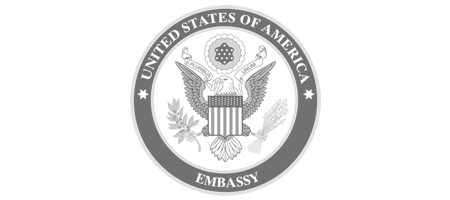
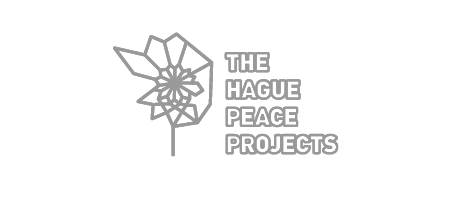
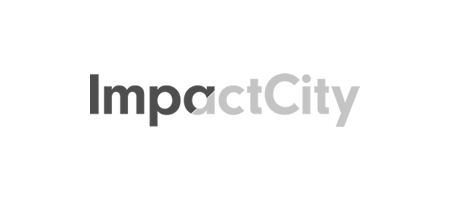
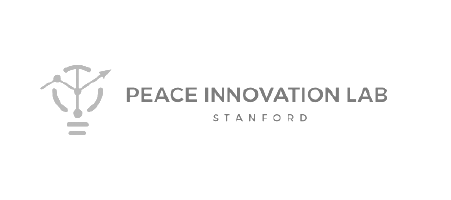

The following companies and organisations were represented at The Hague Hacks Festival 2019:
Organizations: • Justice and Peace • Amnesty International • Stanford Institute for Peace Innovation • Humanity of Things • Faith to the Faithless • Cambodian Youth Network • SOS Nicaragua • Keyboard Freedom • Human Rights Foundation • Women Chapter • UvA GreenHackathon • NonProfit Venture • HiiL • Humanity House • University of Leiden • Leiden University College The Hague • University of Delft • University of Amsterdam • International School of The Hague • Movies That Matter • Ushahidi • ImpactCity • Border Sessions • The Hague Peace Projects Companies: • Radically Open Security • The Hague Security Delta • TechSoup • AI Lab One • Be Data Driven • Nextview • The Hague Tech Embassies: • American Embassy • Norwegian Embassy • Representative Office of Taiwan • Finnish Embassy
